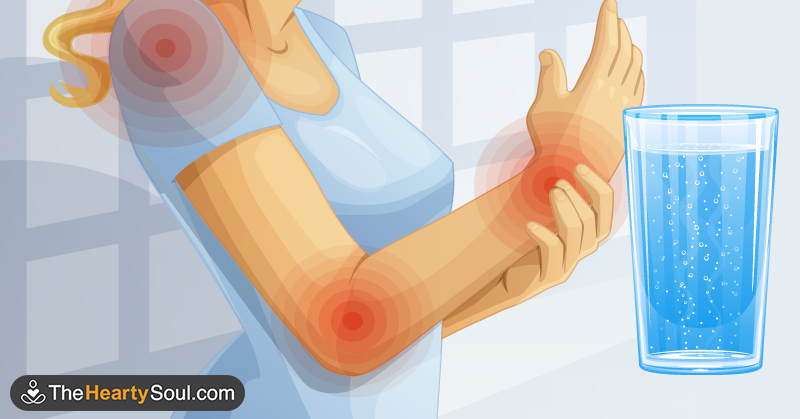We’ve all heard that the human body is primarily composed of water and that we need to consume a certain amount in order to survive. Your muscles and kidneys are composed of 73% water; your blood is composed of 83% water; your lungs are 90% water and your brain is made up of 76% water. We lose water when we breathe and daily through urine and sweat, so replenishment is crucial. Many of us have been told to drink between 6-8 glasses of water a day, but when I ask patients about their water intake, I am told that 2 cups is the daily average. Generally, males need to consume 3 liters (12 cups) per day and females need to consume 2.2 liters (9 cups) per day for optimal hydration. Failing to consume the recommended amount can lead to mild dehydration manifesting in multiple symptoms.
1. Your Urine is Dark Yellow
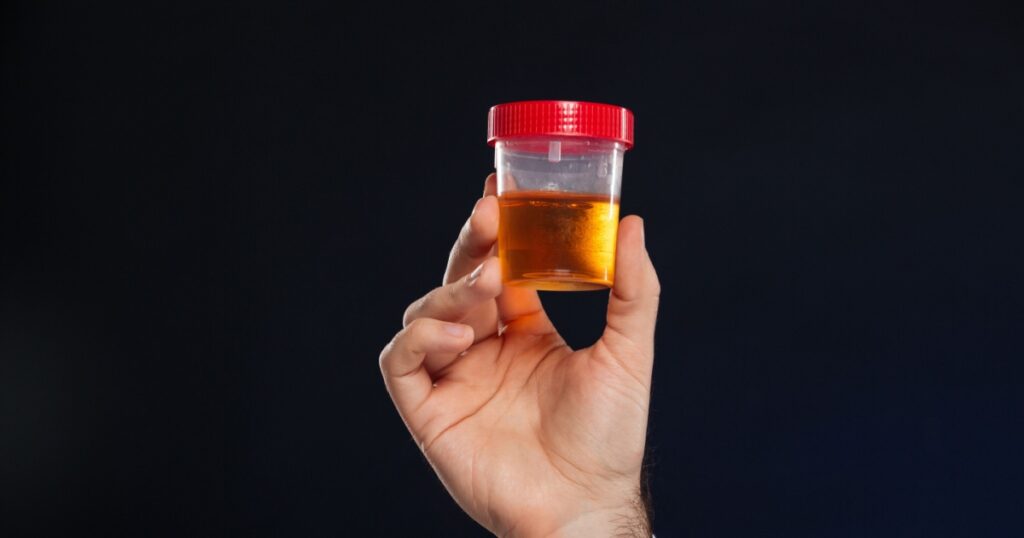
This is often the first sign that you are not drinking enough water. Generally, urine should be a light yellow-amber color. When a person does not consume enough water, the kidneys excrete a “higher concentration of waste products in the urine, including dead blood cells, toxins, proteins and other products that need to be removed from the body”, resulting in darker urine. You may also notice darker urine after consuming certain medications, B-Vitamins, beets, blackberries, asparagus or food coloring. If you notice a temporary change in urine color, first consider if you’ve consumed something that would alter the color of your urine. Next, increase your water intake and observe if your urine color becomes lighter. If your urine stays dark for a prolonged period of time, it could be a sign of more serious health concerns such as hepatitis or gallstones.
Read More: Eat Your Water: 13 of the Most Hydrating Foods
2. Your Urine Output is Reduced
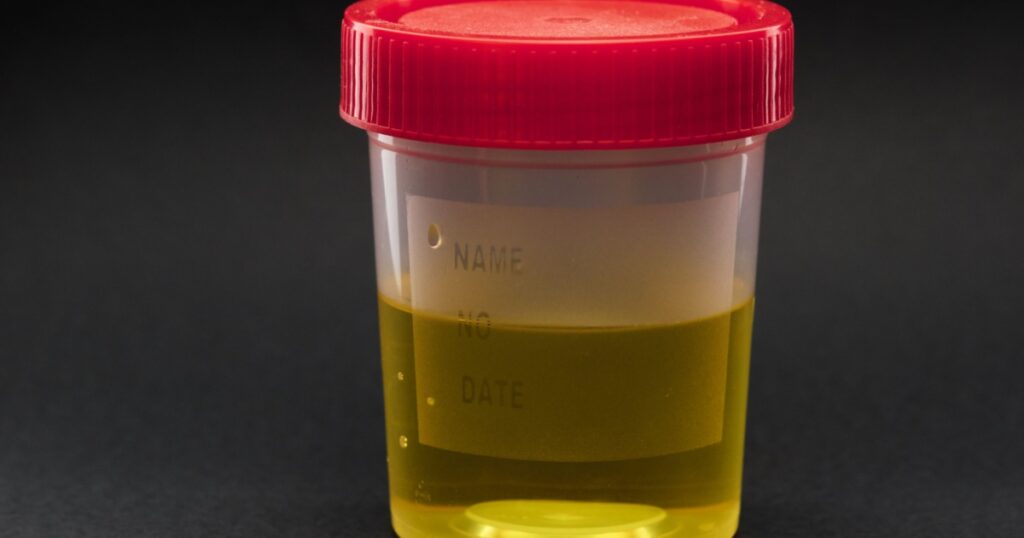
Most people urinate between 6-7 times within a 24-hour period. When you don’t drink enough water, there is less fluid available to replace the fluids being excreted from the body. The kidneys attempt to retain as much fluid as possible to prevent dehydration. If you urinate less than 6 times a day, consider your water intake and increase if necessary.
3. Constipation
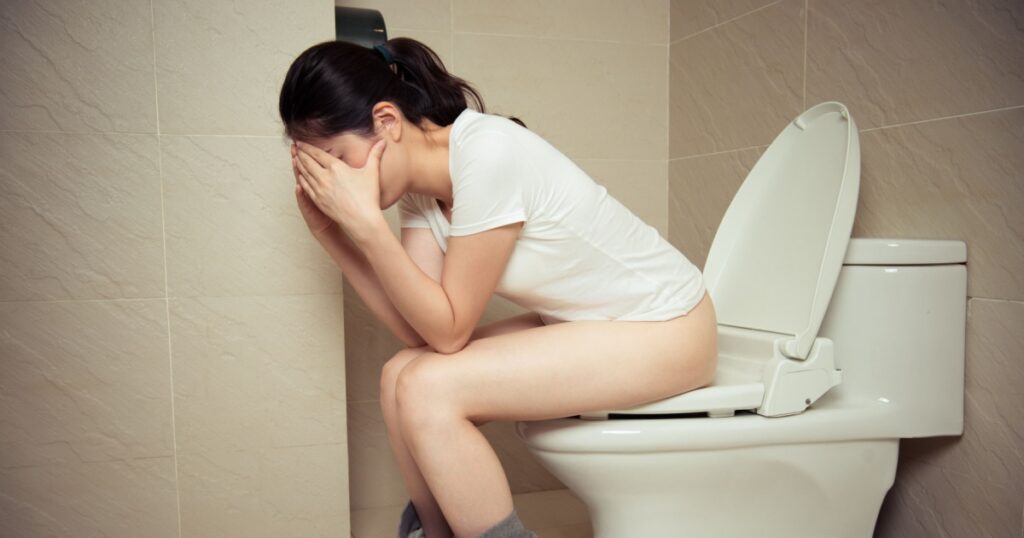
Dehydration is one of the most common causes of constipation, and constipation can often be resolved by increasing water intake. If you are not fully hydrated, your body will try to absorb water from wherever it can, including your colon. A sufficient amount of water in the large intestine is crucial for soft, easy-to-pass stools. Naturally, a lack of water will lead to harder stools that are difficult to pass. To prevent or treat constipation, ensure you are consuming adequate amounts of water in addition to increased fiber found in fruits and vegetables. Constipation can also be the result of physical inactivity, hypothyroidism, intestinal inflammation and dysbiosis, food sensitivities and stress. If you are drinking adequate water, consider other causes of constipation.
4. Your skin is dry and wrinkles are more defined
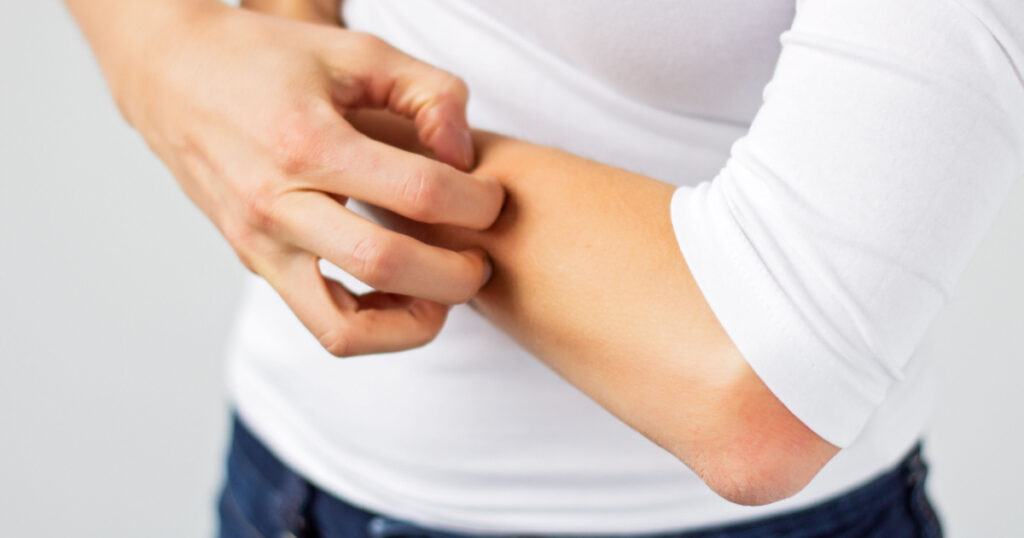
Most women rely on expensive moisturizers to keep their bodies soft and smooth. Some pay high prices for procedures to reduce and eliminate fine lines and wrinkles. Prior to spending money, increase your water intake. According to Dr. Diana Howard, dehydration can lead to irritated, inflamed, itching and sensitive skin. In severe cases, skin can flake and scale or become severely red with cracks and bleeds. Simultaneously, when your skin loses moisture, the cells shrivel, causing wrinkles to appear more defined and making the skin look older. The best way to revitalize your skin is to nourish it with water. If you’re concerned about dry skin, check out this DIY natural skin moisturizer to use in addition to boosting your water intake:
5. Hunger and Weight Gain
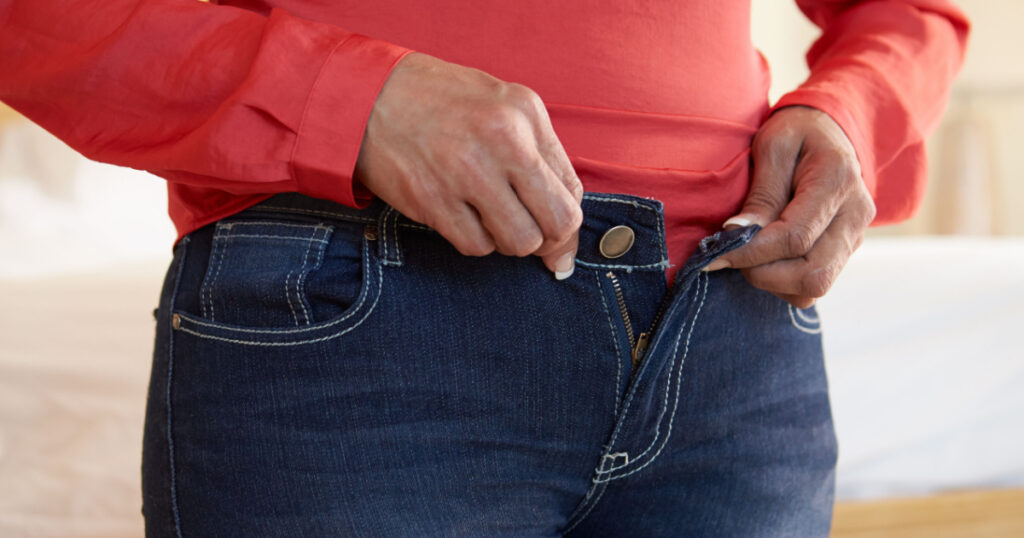
The body is so intrinsically smart but has a glitch – it does not know the difference between hunger and thirst. The hypothalamus, the part of the brain responsible for regulating hunger and thirst, often gets confused, causing hunger pangs in response to thirst. Reaching for a snack instead of a glass of water leads to excess caloric intake and weight gain. If you’re trying to lose or maintain your weight, make sure you are consuming adequate amounts of water. If you feel hungry, grab a glass of water before going for a snack and wait 10-15 minutes to see if the hunger has passed or if it’s still present. If you are still feeling hungry then it is true hunger and time for you to eat.
Read More: Keep Your Dogs Away From The Tempting Ocean This Summer. Saltwater Could Be Lethal To Them
6. Thirst and Dry Mouth
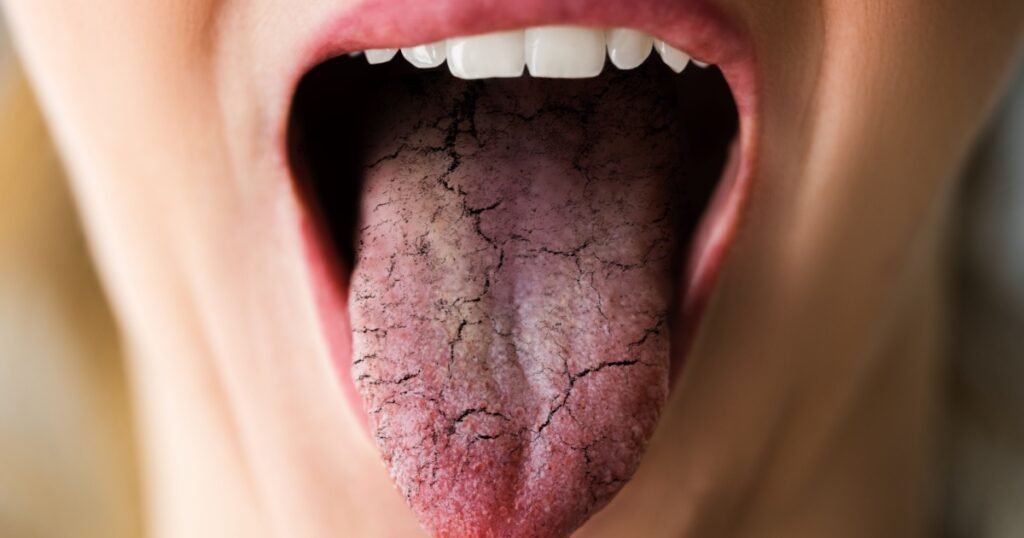
Believe it or not, feeling thirsty for water is a sign that you are already slightly dehydrated. A dry mouth often occurs with thirst and signifies that the mucus membranes in the body need hydration. The only way to resolve thirst and a dry mouth is to drink water throughout the day.
7. Headaches

When you don’t drink enough water, your body will attempt to preserve and reabsorb water from all of your tissues to compensate for the lack of fluid intake. Subsequently, your brain tissue loses some of its moisture and shrinks, pulling away from the skull. Pain receptors are triggered resulting in a headache. Simultaneously, when you don’t drink enough water, blood volume drops, reducing the amount of oxygen being carried to the brain. Blood vessels in the brain dilate in response leading to swelling and inflammation, intensifying the headache.
8. Fatigue
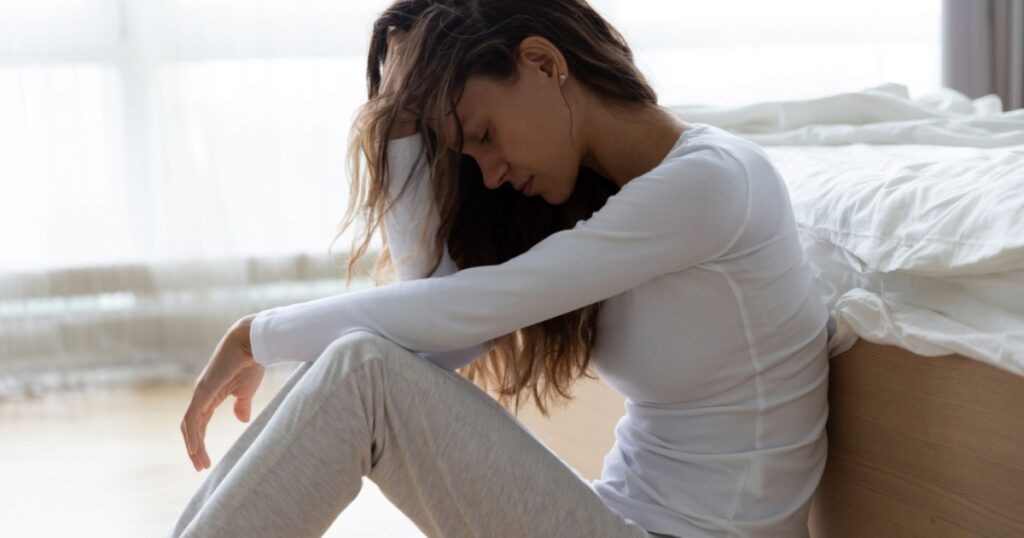
According to a 2011 study, mild dehydration can cause fatigue, tiredness, and low energy. When you’re dehydrated and the blood volume decreases, the heart has to work harder to push oxygen and nutrients through the body. Next time you start to feel tired, skip the coffee (which is dehydrating!) and drink a glass of water instead. Coffee, tea, soda, and sports drinks are not substitutes for water.
Read More: Young Man Invents “Water You Can Eat” to Help Dementia Patients Like His Grandma Stay Hydrated
9. Joint Pain

Water acts as a lubricant to the joints, allowing two bones to slide over each other as the joint moves. When the body doesn’t receive enough water, the joint becomes nutrient deficient leading to damage of the cartilage cells. If you are chronically dehydrated, your cells will eventually reach a tipping point and the cartilage will degenerate beyond repair. If you suffer from joint pain, be mindful of your water intake and increase if necessary.
10. Weak Immune System
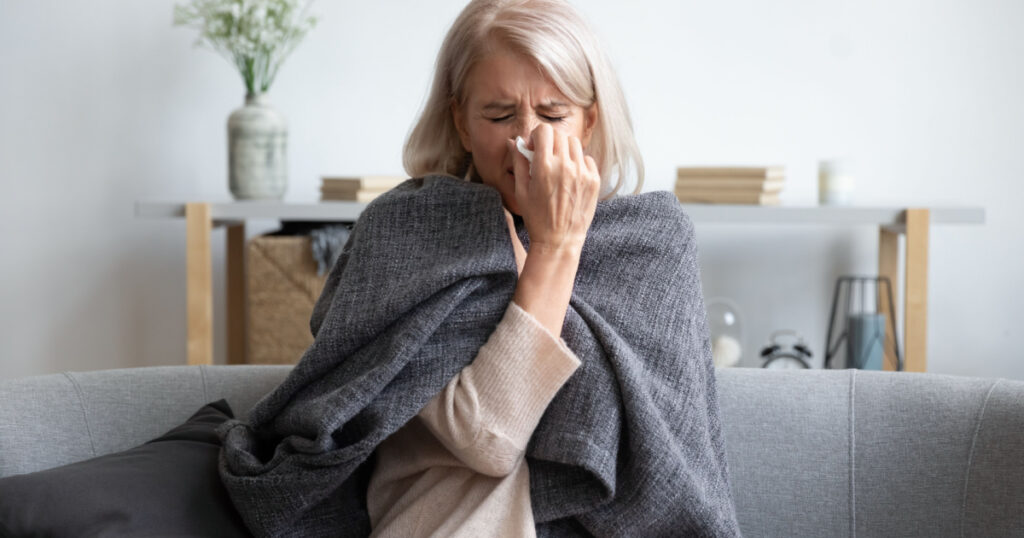
Dehydration increases the concentration of toxins in the blood, which can weaken the immune system. Optimal hydration is essential in assisting in the elimination of any illness byproducts and helps the immune system ward off infection.
You’re Not Sick, You’re Thirsty
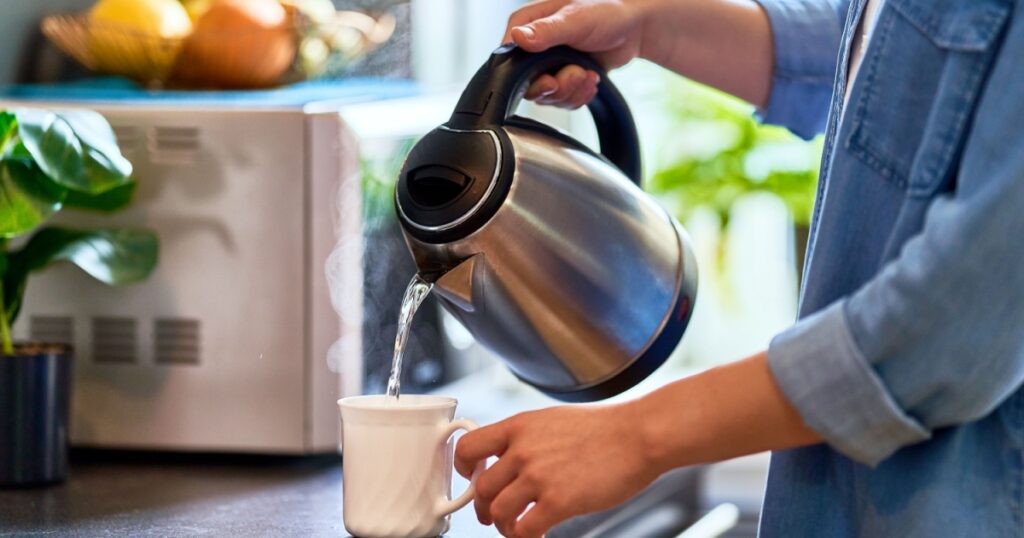
Many people believe that all liquids provide hydration but the truth is, not all fluids are hydrating! Some beverages, such as coffee, pop, and juice can actually dehydrate the body because of their caffeine and sugar content (13). According to Dr. Batmanghelidi, a Medical Doctor and expert in the healing powers of water, many ailments classified as “diseases” positively respond to increased water intake. Based on his research, diabetes, elevated blood pressure and cholesterol, obesity, cardiovascular disease, asthma and joint pain, can all be cured by simply increasing your water consumption. If you want to optimize your health, remember that small changes make big differences. Become mindful of your water intake and ensure you are consuming adequate amounts. If you’re having a hard time getting all your water in, keep a glass water bottle with you at all times and consider setting an alarm every hour as a reminder to drink!
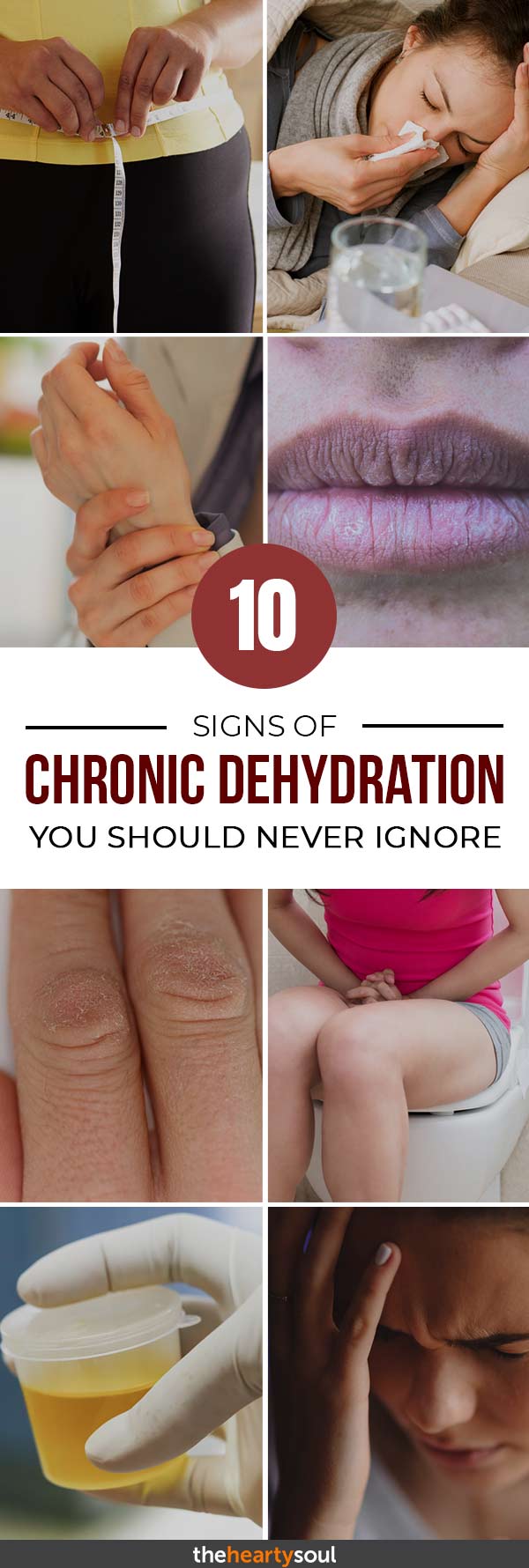
Read More: Katie Piper Sounds an Urgent Warning About the Hot Water Bottle Flower
Sources
- HH Mitchell, et al. 1945. The Chemical Composition of the adult human body and its bearings on the biochemistry of growth. https://www.jbc.org/content/158/3/625.full.pdf
- Freedom Network. 2005. https://www.std-gov.org/symptoms/dark_urine.htm
- Arnaud, MJ. 2003. Mild Dehydration: A Risk Factor of Constipation? European Journal of Clinical Nutrition. 57 Suppl 2:S88-95 https://www.ncbi.nlm.nih.gov/pubmed/14681719
- Mayo Clinic Staff. 2016. Diseases and Conditions: Constipation. https://www.mayoclinic.org/diseases-conditions/constipation/basics/definition/con-20032773
- Esther Crain. 2016. Hidden Causes of Hunger. https://www.health.com/health/m/gallery/0,,20920951,00.html#
- Dana Benson. 2016. Thirsty? You’re already dehydrated. Baylor College of Medicine News. https://www.bcm.edu/news/sports-medicine/thirsty-you-are-already-dehydrated
- Mayo Clinic Staff. 2016. Symptoms Headache. https://www.mayoclinic.org/symptoms/headache/basics/causes/sym-20050800
- Ganio, M.S. et al. 2011, Mild dehydration impairs cognitive performance and mood of men. British Journal of Nutrition. Nov; 106(10):1535-43
